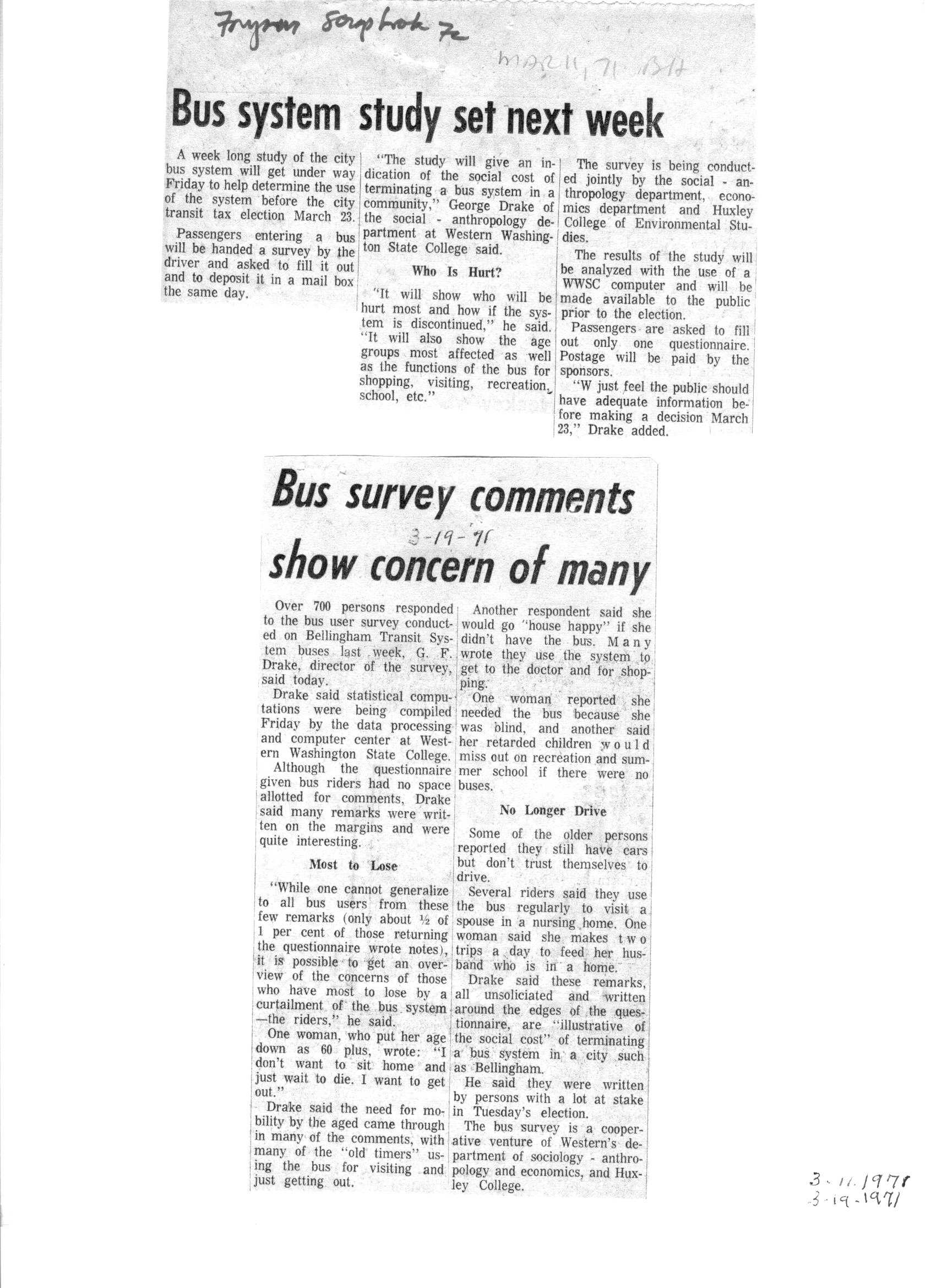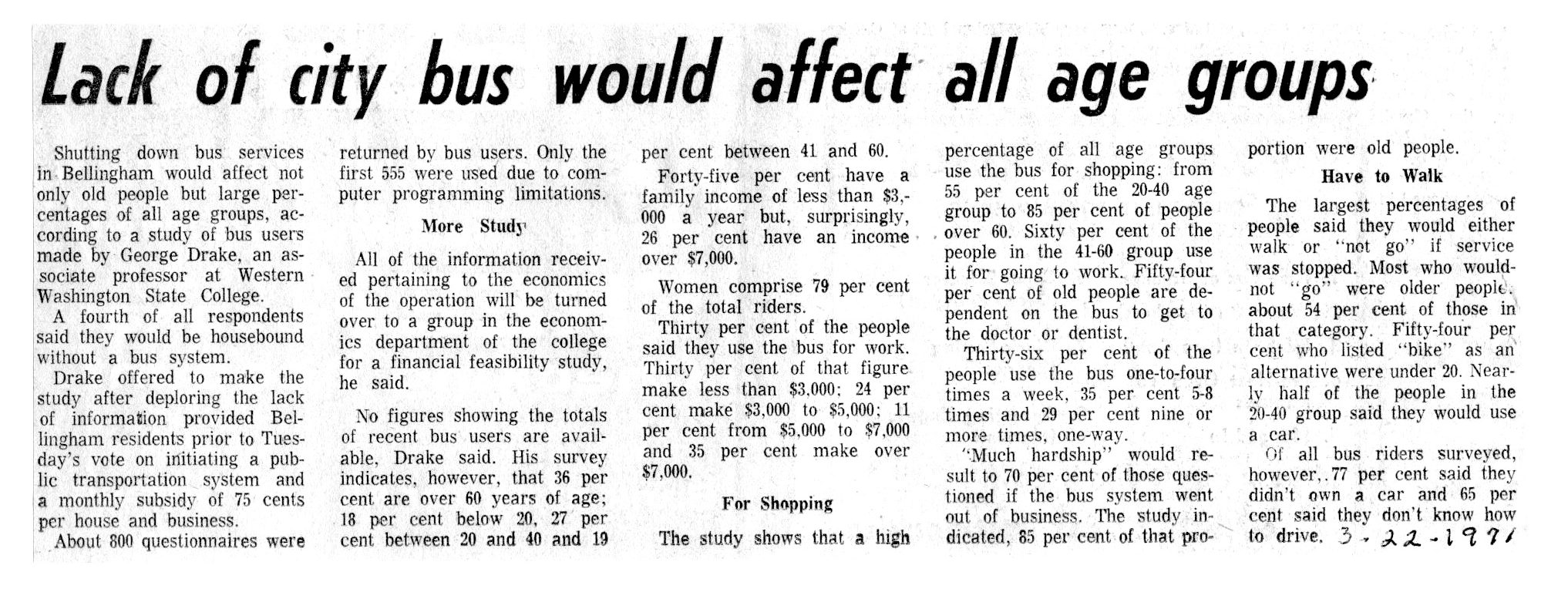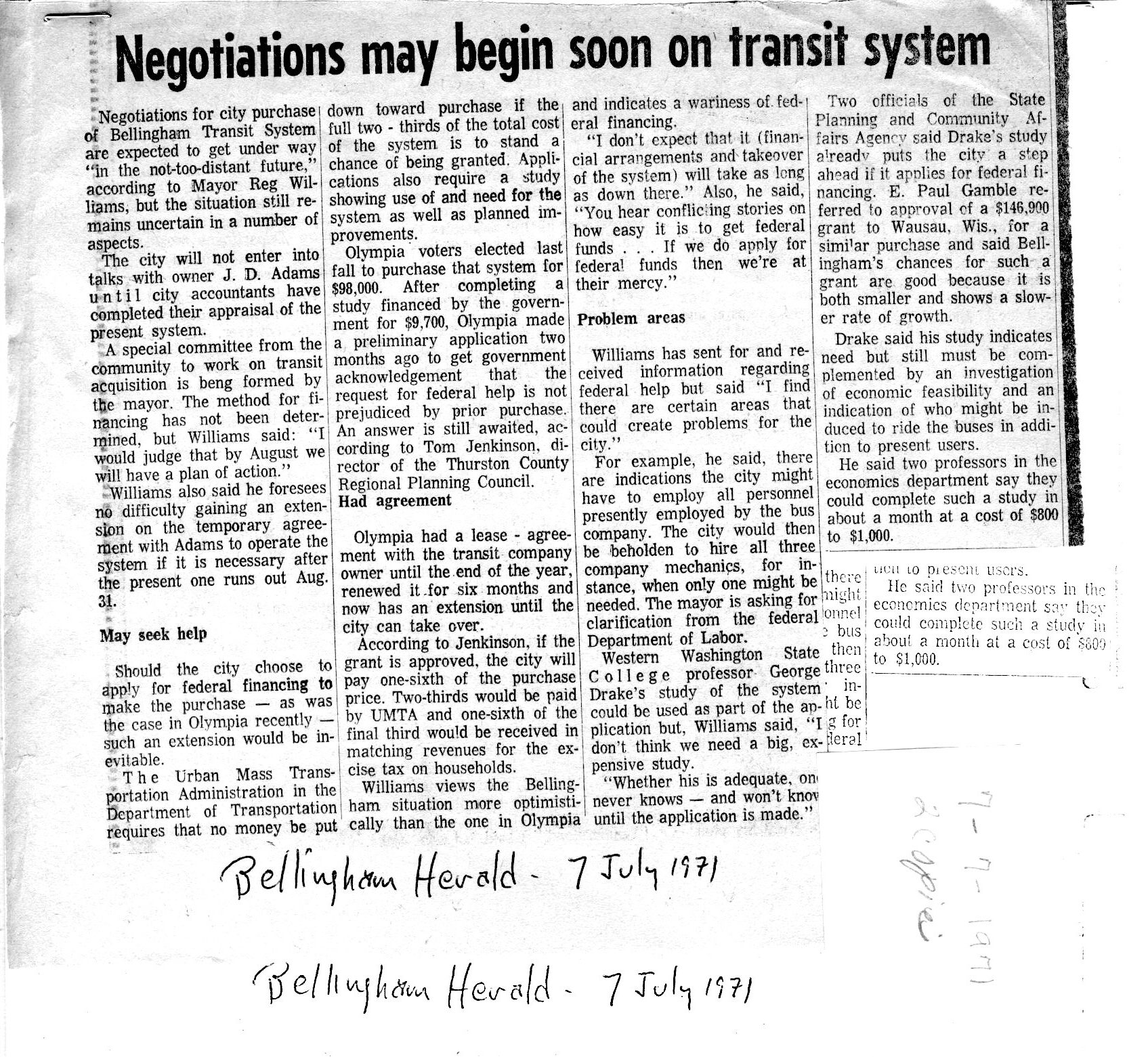Saving the Bus System
Back in March of 1971, I read in the Bellingham Herald newspaper that the City Council would be discussing putting on the ballot a proposal that the City take over the local bus system, which was failing, and impose a property tax to pay for it. I could not envision the city without a bus system so I went to the meeting.
The city administration was against the proposal as were most of the City Council members. All I heard was “taxes, more taxes, we don’t need more taxes.” Finally, I stood up and pointed out that while everyone was talking about the cost of running a bus system no one was talking about the cost of not having a bus system. I pointed out that there would be a horrible social cost if the city did not have some form of public transportation. To help the public in their decision as to support the tax or vote it down I offered to conduct a survey of current riders of the bus and, to the extent possible, show the social cost of not having a bus system. I further requested $300 for postage and supplies.
Mary Knibbs, City Council member and an instructor in History at Sehome High School, said “Thank you, Dr. Drake, for your offer. I will call you.” She never did so with no support from the City Council or from the city administration I went ahead with plans to conduct a survey of riders. I was able to get Huxley College at WWU to pay for postage and supplies. Then to work, to design the questionnaire, print it, design the protocol for the distribution of the questionnaires and the process for coding the data when it came in. The Sociology Department refused to pay for computer time as it was not an academic research project. Staff in the Computer Science Department volunteered to handle the data manipulation on their own time.
Every day during the week preceding the election every person who got on the bus was given a copy of the survey to fill out. On Friday before the election, the local newspaper carried an article based on the comments that were written on the questionnaire. The local TV station, KGMI, got interested and began interviewing folks getting off the bus to get their stories of what would happen if they did not have a bus system. Then the local radio station began running interviews with riders. On Sunday and Monday before the Tuesday election, there were numerous articles in the paper giving the statistical results of the survey which, of course, demonstrated the nature of the population that would suffer were there not a city transit system. Suffice it to say that the issue passed overwhelmingly.
I went to the next City Council meeting and told the City Council that I was glad to have been some use in the recent election and that if they ever needed my help again they had my phone number.
I did not realize it at the time but that survey then qualified the City of Bellingham to receive state and federal transportation grants. The system got new buses and a professional staff that generated wide public support. Now, almost 50 years later the old bus system has become the Whatcom Transit Authority (WTA) which serves the entire county and has an annual budget of over thirty-three million dollars. Passengers rack up over four million six hundred rider trips annually.
This volunteer activity on my part, conducted by an irate citizen (self) who felt the community deserved better service than they were getting from the city administration and city council is one of my major achievements in the City of Bellingham.
What can we learn from this activity?
- One person can make a hell of an impact on community decision making. Sure, I got others involved but basically it was a one-man project.
- It took a sense of community responsibility on my part. Call it patriotism if you will. Let us fight for our local community as well as for our country.
- Let us not underestimate the goodwill and compassion of our fellow citizens to support projects such as this when they have the necessary information.


